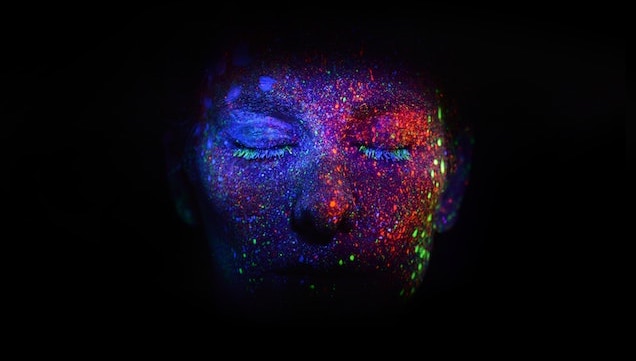If you’ve had even half an eye on the developing psychedelic renaissance these past two decades, you may have noticed the name Dr. Mathew Johnson coming up over, and over, again. This is because, as a professor of psychiatry and behavioral sciences at Johns Hopkins, he has been at the forefront of some of the most revolutionary research into psychedelic therapy since 2004. He has appeared as a spokesperson for psychedelic research on the BBC, CNN, Fox News and 60 Minutes, and is one of the most published researchers on psychedelics in the world.
So, we can count ourselves pretty blessed that Dr. Johnson recently sat down to share some of his knowledge in a more digestible form than the standard scientific research paper. In fact, for two hours the good doctor answered ‘24 huge questions about psychedelics’ for the Youtube channel Big Think.

Although the whole vid is worth a watch (find the link here), we’ve decided to streamline a little bit by giving you the low down of 5 of the most intriguing questions Dr. Johnson answered. He does not just share facts and figures — using his considerable expertise Dr. Johnson also speculates potential futures for psychedelic therapy too. It’s fascinating stuff! So let’s dive in…
Mental Health Disorders Stem From Addiction
One of Dr. Johnson’s insights was a fascinating repositioning of mental health disorders as being rooted in addiction. As research into treating both addiction and mental health disorders has advanced, brain scans have shown that there is a crossover in which regions of the brain are active for both complaints.
Dr. Johnson said;
“I kind of think of all of these disorders as different forms of addiction. So, whether it’s to a substance like tobacco or alcohol, cocaine, or a way of thinking about yourself in depression — the self-persecutory thoughts that we all have but that are overexpressed in someone with depression — and once you’re in it, it becomes a self fulfilling prophecy.”
He continued;
“Once you spend a lot of your day calling yourself a failure, then that rubs off on other people and you spiral downward, and that’s an addiction. It’s this narrowed, mental and behavioral repertoire.”
Both addiction to substances, and addiction to negative thoughts about ourselves or the world trap us in negative spirals. However, Dr. Johnson believes that psychedelics are the answer to these issues.
“…wherever that’s taking you—to a substance or to a certain sub-optimal way of thinking about yourself—psychedelics, when done well in the right setting, have the ability to just blow people out of that narrowed story.”

Psychedelics Can Improve Your Meditation Practice
Dr. Johnson mused;
“People who are starting a meditation practice, does a psilocybin experience help to jumpstart that practice? Does it help the person to get more value out of their meditation experience?”
Answering his own question he said;
“We found results consistent with that. Particularly with more prosocial benefits: improvements in people’s lives, helping others, these sort of altruistic traits. Having the psilocybin experiences on top of the meditation practice, you seem to get more bang for your buck.”
Great news for the more zen-leaning psychonauts — and those who want to become one!
He also shared the fascinating flip-side — that being experienced in meditation doesn’t necessarily prepare you for a psychedelic experience. Revealing that even meditators with thousands of hours worth of experience were “floored” by the experience, he explained;
“They’ve kind of cleaned up their own mess in their psychological basement, so to speak… But I remember the first or second participant in that line of research. The person was completely focused on all the kind of baggage that came from being the second fiddle child in the family of origin dynamic. You know, jealous of the older sibling and this type of stuff. You would have thought [they] would have handled all this kind of like low-level psychological baggage decades ago, but no, people can be profoundly hit by these experiences.”

Psychedelics Get Deep
When asked what had most amazed him in his research, Dr. Johnson made special mention of how psychedelics are able to bring to the surface unresolved issues — even when the trip itself was not embarked upon with that in mind.
He explained;
“They might be in a study to quit smoking and they have some unresolved trauma from some horrific relationship from 40 years ago that just seems to come to the surface,”
“There does seem to be something — and we still need to figure out how this works scientifically, and verify that it works this way scientifically — but it seems through observation that the material that needs to come up psychologically for that person is the material that comes up,”
With this in mind, Dr. Johnson shared that he tries to explain this phenomena to participants thusly,
“…it’s like The Rolling Stones lyric: ‘you may not get what you want, but you may get what you need.’”

How ‘Big Pharma’ Will Attempt to Get In On The Psychedelic Boom
Dr. Johnson reckons that the mainstream pharmaceutical industry (aka Big Pharma) are biding their time before they fully invest in psychedelics. They are likely to be watching the smaller start-up companies who are developing new drugs, waiting to swoop in and buy them out when the time is right.
“It’s mainly small venture capitalists [and] startups that are exploring psychedelics and investing in their potential development of the FDA pathway, but that’s been the trend and for mental health drugs for a while now,…Let the small companies make these investments and if they come up with promising findings early on, then the Big Pharma companies come in and pay the millions of dollars to buy those companies out and move forward with it.”
However, as those with the experience know, psychedelics, such as psilocybin are not pills that you pop every day.
“… it’s a very different model, where you’re not going to be making a whole lot of money selling that pill on a daily basis.” Johnson stated. “Hopefully, you’re only selling one, two or three pills to someone over their lifetime if it works. So, more of the business model would be one of the infrastructure and the professional guidance through these sessions.”

Younger People Will Benefit From Psychedelic Therapy
Psychedelics have the ability to treat an incredibly wide range of disorders; including depression, OCD, PTSD, anorexia and addiction. This power is “unheard of” according to Dr. Johnson. Thus far, studies have been limited to people over the age of 18. However, as young people also suffer from all of these conditions, Dr. Johnson believes it is only a matter of time until the effects of psychedelic therapy on children will need to be studied.
He elaborated;
“As we continue the research, we’re going to need to look at younger populations. In fact, this is something the FDA really wants…It doesn’t matter if it’s psychedelics or something else. If it looks really beneficial in adults, there is a mandate to really explore this, because adolescents suffer from depression and addiction, etcetera.”
He did highlight the concerns that would be flagged up if this idea came to fruition. However, any risk appears to be far out-weighed by benefits.
“There are extra concerns about the developing brain…But there are concerns about untreated mental illness, including suicides and overdoses. So, there’s a risk in not exploring this [in adolescents] and being very, very cautious.”

Taking This Trip Together
So, there you have it. The future’s looking bright for psychedelic research, and it’s poised to help us all for the better! With those at the forefront of these projects sharing this journey of progression, we can all feel part of the psychedelic revolution.

Now, if you excuse us, we’re just off to ‘enhance our meditation practice’ with a little help from a magic mushroom grow kit!





